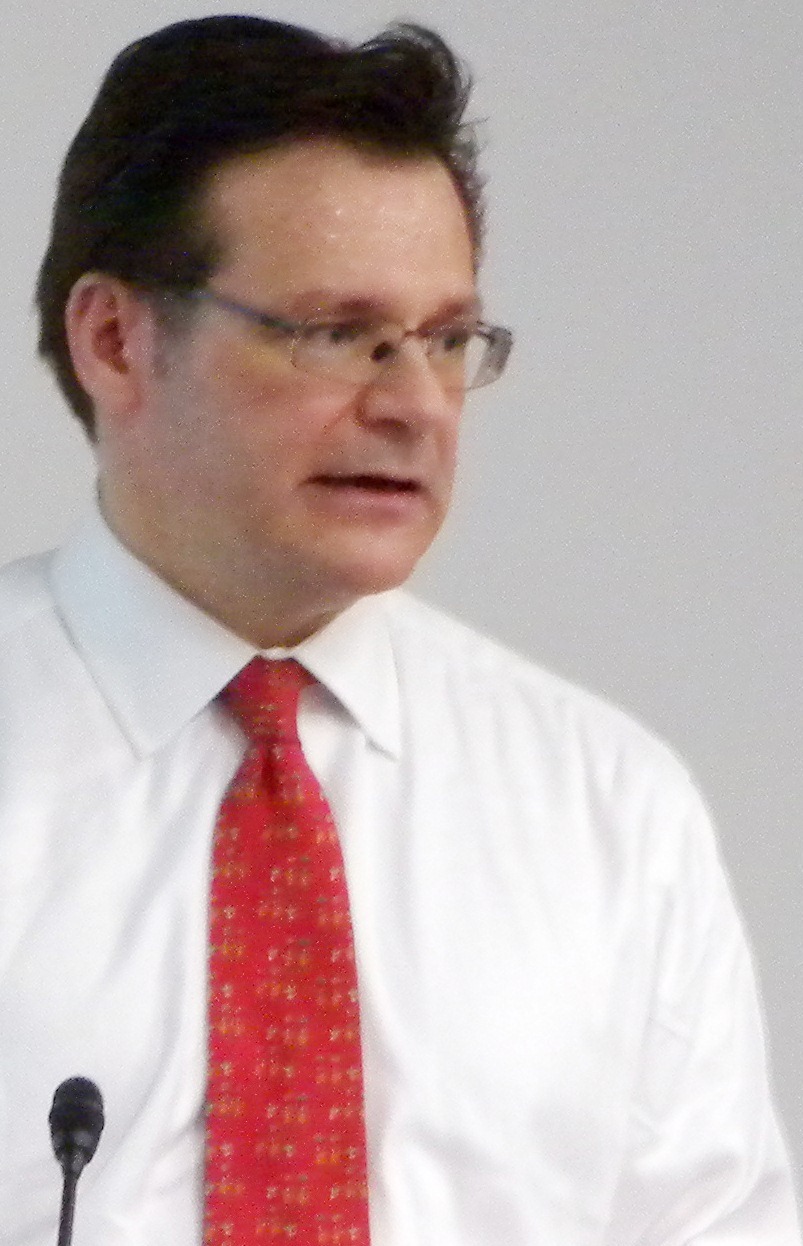What Educational Policies Matter Most to Improve the Quality of Learning? Discussion towards Post-2015 based on Collaborative Project on SABER
2014.05.15
What are effective educational policies to improve the quality of children’s learning?
What should be done to narrow the gap between the policies and what is happening on the ground?
SABER (System Approach for Better Education Results) is the initiative that tries to answer those questions. It produces comparative data and knowledge on education policies and institutions, with the aim of helping countries systematically strengthen their education systems. JICA has been collaborating with the World Bank (WB) in SABER through the dispatch of staff members and the collaborative research since February 2011. In particular, JICA has contributed to the SABER’s tool and developed research in the field of school management and accountability systems (School Autonomy and Accountability: SAA).

Dr.Patrinos
In light of the collaborative works on SABER between JICA and WB, a seminar was held on May 1. With an aim of discussing SABER and the post-2015 development agenda in education, it brought together researchers, practitioners from JICA and WB, and university researchers.
In the seminar, Dr. Harry Patrinos, Sector Manager of the Human Development Network of WB, presented two indicators: “57 million children are out of school;” and “250 million children who attend school cannot read or write.” These two represent the remaining challenges in education towards the post-2015. He introduced cases of Uganda and Nigeria where SABER helps change policy and develops new laws and program initiatives to face those challenges. Following Dr. Patrinos, Dr. Yiden Wang, senior education specialist, introduced the training program with the SABER analytical tools.
In the field of SAA, Ms. Angela Demas, another senior education specialist of the WB, presented an outline of the SAA tools and the case of a policy dialogue in Kazakhstan. Subsequently, Mr. Kazuro Shibuya, a staff member of JICA’s Human Development Department, reported on the revision of the SAA tool incorporating the transparency of school management committees and their activities, based on the knowledge of JICA’s technical cooperation. He referred to the effectiveness of SABER as a means of linking the policies to the actual situation on the ground, drawing on the case of collaboration among WB, Global Partnership for Education, and JICA in Senegal.
JICA Senior Research Fellow Takako Yuki, on behalf of the collaborative research project, introduced complementary tools for analyzing the gap between the practice and the policy, and the correlation between practices and learning achievements. The tool was developed based on the research findings in Burkina Faso and Senegal. In this regard, she pointed out that policies of the school management system should be considered in balance with decentralization, learning assessment and information management policies. She also emphasized the importance of a comprehensive and sustainable policy monitoring system.
The session on the theme of “Learning Achievements in the Post-2015 Development Agenda” was moderated by Associate Professor Yuto Kitamura of the University of Tokyo. Dr. Patrinos of WB, Professor Kazuhiro Yoshida of Hiroshima University, Vice-Chairperson of the EFA (Education for All) Management Committee, and Mr. Shinichi Ishihara, Group Director of the Human Development Department of JICA, exchanged their views after their presentations. Towards the better learning achievements that should be the goal in post-2015 educational development, it is noted that SABER is the effective tool to respond to the question “what policies work under what contexts?” and to analyze policies when designing new project or program, such as capacity building in the educational assessment system.


事業事前評価表(地球規模課題対応国際科学技術協力(SATREPS)).国際協力機構 地球環境部 . 防災第一チーム. 1.案件名.国 名: フィリピン共和国.

事業事前評価表(地球規模課題対応国際科学技術協力(SATREPS)).国際協力機構 地球環境部 . 防災第一チーム. 1.案件名.国 名: フィリピン共和国.

事業事前評価表(地球規模課題対応国際科学技術協力(SATREPS)).国際協力機構 地球環境部 . 防災第一チーム. 1.案件名.国 名: フィリピン共和国.

事業事前評価表(地球規模課題対応国際科学技術協力(SATREPS)).国際協力機構 地球環境部 . 防災第一チーム. 1.案件名.国 名: フィリピン共和国.

事業事前評価表(地球規模課題対応国際科学技術協力(SATREPS)).国際協力機構 地球環境部 . 防災第一チーム. 1.案件名.国 名: フィリピン共和国.
scroll